At Hillcrest Adolescent, our dedicated team of clinicians and therapists specializes in treating teens ages 12-18, working collaboratively with youth and their families to address a broad spectrum of mental health challenges in a nurturing residential environment.
We are proud to be accredited by CARF (Commission on Accreditation of Rehabilitation Facilities), demonstrating our commitment to meeting and exceeding the highest standards of care in adolescent mental health treatment.
Our comprehensive approach to adolescent treatment forms the foundation of our program, where we focus on empowering teens and their families through evidence-based therapies, therapeutic relationships, and individualized care plans. By addressing the whole person – mental, emotional, physical, and social needs – we help young people develop the skills and resilience needed for lasting recovery and lifelong wellness.

About Us
At Hillcrest Adolescent Center, we provide a comprehensive and compassionate approach to adolescent treatment. Our Foundations of Care emphasize individualized attention, evidence-based practices, and holistic therapies to help teens thrive emotionally, mentally, and socially.
We believe in addressing the root causes of behavioral and emotional challenges, not just the symptoms. Our unique approach is designed to support long-term growth and healing.

Our Commitment:
A Multi-Disciplinary Approach To Treatment
Treatment at Hillcrest Adolescent Center stands out for its intensity and depth. Each client receives individual therapy two to three days per week, far exceeding the frequency provided by many other programs. This rigorous approach allows us to dive beyond surface-level behaviors like sneaking out or deflection, helping teens confront and heal the core issues driving their struggles.
We understand that as a parent, seeing your child suffering with a mental health disorder, behavioral disorder, or addictive disorder is overwhelming, frustrating, and scary.
We set a 90-day treatment standard, knowing that true healing takes time. The first 30 days help teens adjust to the environment, but challenges like regression or frustration may surface as they grow more comfortable. These are normal parts of the process, where the real work begins. Parents may feel the urge to “rescue” their child during tough moments, but trust our team—we know what we’re doing, and we guide families through this crucial phase of growth.
If psychological testing is necessary, we ensure it is seamlessly integrated into each teen’s treatment plan.

Foundations of Adolescent Care:
Our 8 Core Principles
1. Education 
We understand the importance of education in a teen’s life, even during treatment. At Hillcrest, we provide a structured academic program led by our Director of Education, ensuring clients stay on track with their studies. This allows teens to maintain academic progress while focusing on their personal growth.
Our program accommodates a variety of learning needs, collaborating with schools to align curricula and provide a smooth transition back to traditional education after treatment. This balance helps teens build confidence, maintain a sense of normalcy, and develop the discipline needed to succeed both academically and in life.
2. Experiential Therapies

Therapy at Hillcrest is not confined to a chair in a therapist’s office. We believe in the power of experiential therapies to engage teens on a deeper, more personal level. These activities encourage emotional growth, self-expression, and physical well-being.
- Surf Therapy: Teens connect with nature and find healing through the rhythm of the ocean, learning resilience and mindfulness.
- Equine Therapy: Working with horses fosters empathy, trust, and non-verbal communication, helping teens build self-awareness and emotional regulation.
- Holistic Therapy: We incorporate practices such as aromatherapy and art therapy to help teens access new ways of processing emotions.
- Music Therapy: Through creating or listening to music, teens explore self-expression, relieve stress, and improve mood.
- Yoga and Meditation: These practices teach teens to quiet their minds, focus on the present moment, and develop coping strategies for stress and anxiety.
These therapies provide teens with opportunities to discover new passions and coping mechanisms while enhancing their overall treatment experience.
3. Individualized Care

Every teen is different, and so is their journey to recovery. Our commitment to individualized care ensures each client receives a highly tailored treatment plan. Central to this approach is a 50-minute individual therapy sessions two to three days per week, allowing therapists to form meaningful connections with clients and address their unique challenges.
This intensive therapy schedule helps us move beyond surface-level issues, guiding teens to uncover the root causes of their struggles. Whether they are dealing with trauma, anxiety, depression, or deflection behaviors, our therapists provide the tools and strategies teens need to heal deeply and sustainably.
4. Family Involvement

We know that healing doesn’t happen in isolation—families are a vital part of the process. At Hillcrest, we provide robust family services, including individual therapy sessions for parents and guidance on navigating challenges at home.
Family members are encouraged to spend time with their teen during treatment. Starting in week three, parents can take their teen out on a day pass, and as discharge approaches, overnight passes become an option. These moments provide families with opportunities to rebuild trust, practice healthy communication, and reinforce the progress made in treatment.
By the time a teen completes our program, families are equipped with the skills and understanding needed to support their continued growth.
5. Skill-Building Treatment

For teens to thrive after treatment, they need practical tools for everyday life. Our skill-building program focuses on developing responsibility, independence, and accountability.
Teens learn essential life skills such as:
- Managing chores
- Budgeting and earning an allowance
- Problem-solving and conflict resolution
These activities help teens establish a sense of structure and prepare them to transition smoothly back into their home environment. Skill-building is a cornerstone of sustainable recovery and personal growth.
6. Strength-Based Approach

Rather than focusing solely on a teen’s challenges, we take a strength-based approach to treatment. This means identifying and nurturing each teen’s inherent talents, abilities, and potential.
By emphasizing their strengths, we help teens build self-esteem, resilience, and a positive sense of identity. This approach empowers them to see themselves as capable and deserving of success, providing a foundation for lifelong confidence and growth.
7. Connection

Connection is at the heart of healing. Teens at our adolescent treatment can benefit from a safe and supportive environment where they can form meaningful relationships with peers and staff.
We foster healthy communication, encourage teamwork, and promote peer support through group activities and therapeutic exercises. These experiences help teens build trust, improve social skills, and realize they are not alone in their struggles.
8. Trust

Healing cannot happen without trust, and at Hillcrest, we make building trust a top priority. Many teens arrive feeling vulnerable, fearful, or resistant. Our approach is to meet them where they are—emotionally, mentally, and socially—acknowledging their unique circumstances.
We create a judgment-free space where teens feel safe to open up at their own pace. By actively listening, validating their experiences, and treating them with genuine care and respect, we foster an environment where trust grows naturally over time.
1. Education 
We understand the importance of education in a teen’s life, even during treatment. At Hillcrest, we provide a structured academic program led by our Director of Education, ensuring clients stay on track with their studies. This allows teens to maintain academic progress while focusing on their personal growth.
Our program accommodates a variety of learning needs, collaborating with schools to align curricula and provide a smooth transition back to traditional education after treatment. This balance helps teens build confidence, maintain a sense of normalcy, and develop the discipline needed to succeed both academically and in life.
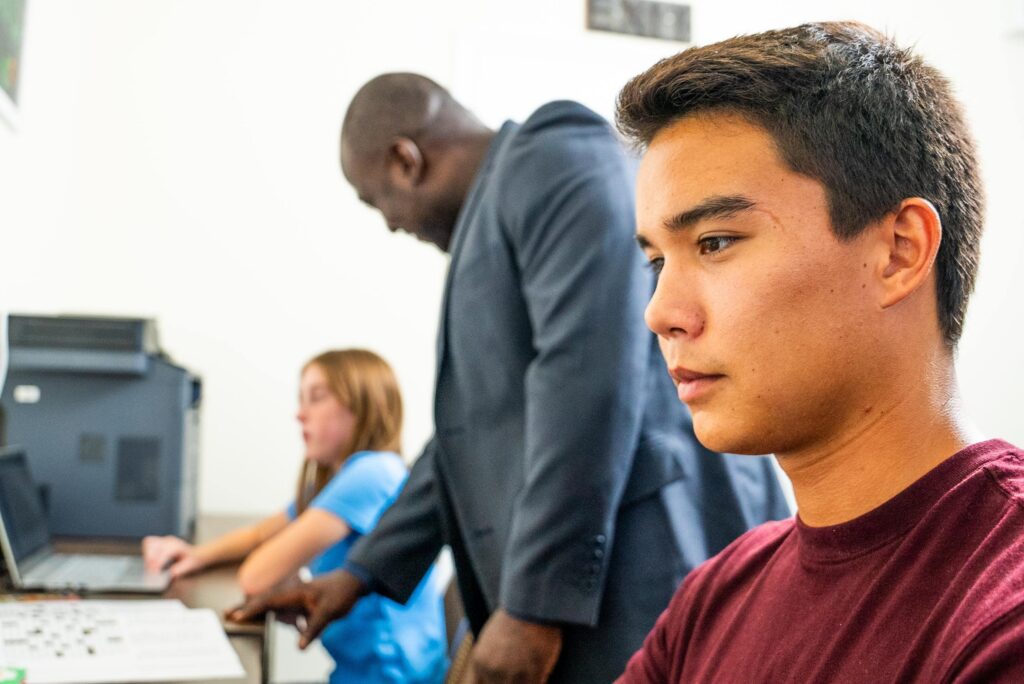
2. Experiential Therapies

Therapy at Hillcrest is not confined to a chair in a therapist’s office. We believe in the power of experiential therapies to engage teens on a deeper, more personal level. These activities encourage emotional growth, self-expression, and physical well-being.
- Surf Therapy: Teens connect with nature and find healing through the rhythm of the ocean, learning resilience and mindfulness.
- Equine Therapy: Working with horses fosters empathy, trust, and non-verbal communication, helping teens build self-awareness and emotional regulation.
- Holistic Therapy: We incorporate practices such as aromatherapy and art therapy to help teens access new ways of processing emotions.
- Music Therapy: Through creating or listening to music, teens explore self-expression, relieve stress, and improve mood.
- Yoga and Meditation: These practices teach teens to quiet their minds, focus on the present moment, and develop coping strategies for stress and anxiety.
These therapies provide teens with opportunities to discover new passions and coping mechanisms while enhancing their overall treatment experience.
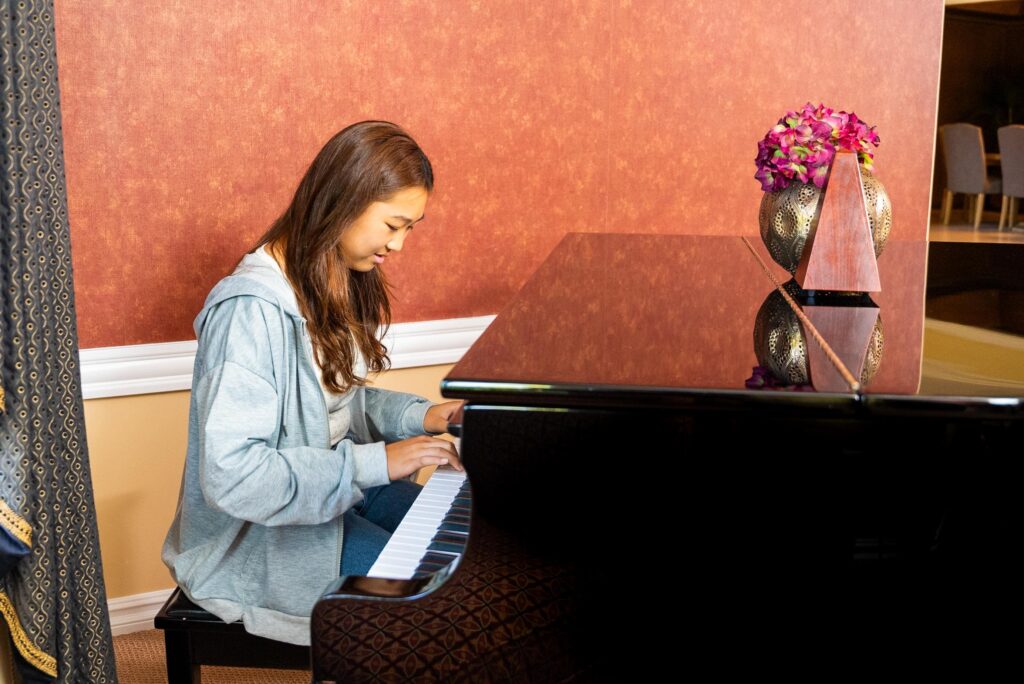
3. Individualized Care

Every teen is different, and so is their journey to recovery. Our commitment to individualized care ensures each client receives a highly tailored treatment plan. Central to this approach is a 50-minute individual therapy session five days a week, allowing therapists to form meaningful connections with clients and address their unique challenges.
This intensive therapy schedule helps us move beyond surface-level issues, guiding teens to uncover the root causes of their struggles. Whether they are dealing with trauma, anxiety, depression, or deflection behaviors, our therapists provide the tools and strategies teens need to heal deeply and sustainably.

4. Family Involvement

We know that healing doesn’t happen in isolation—families are a vital part of the process. At Hillcrest, we provide robust family services, including individual therapy sessions for parents and guidance on navigating challenges at home.
Family members are encouraged to spend time with their teen during treatment. Starting in week three, parents can take their teen out on a day pass, and as discharge approaches, overnight passes become an option. These moments provide families with opportunities to rebuild trust, practice healthy communication, and reinforce the progress made in treatment.
By the time a teen completes our program, families are equipped with the skills and understanding needed to support their continued growth.

5. Skill-Building Treatment

For teens to thrive after treatment, they need practical tools for everyday life. Our skill-building program focuses on developing responsibility, independence, and accountability.
Teens learn essential life skills such as:
- Managing chores
- Budgeting and earning an allowance
- Problem-solving and conflict resolution
These activities help teens establish a sense of structure and prepare them to transition smoothly back into their home environment. Skill-building is a cornerstone of sustainable recovery and personal growth.
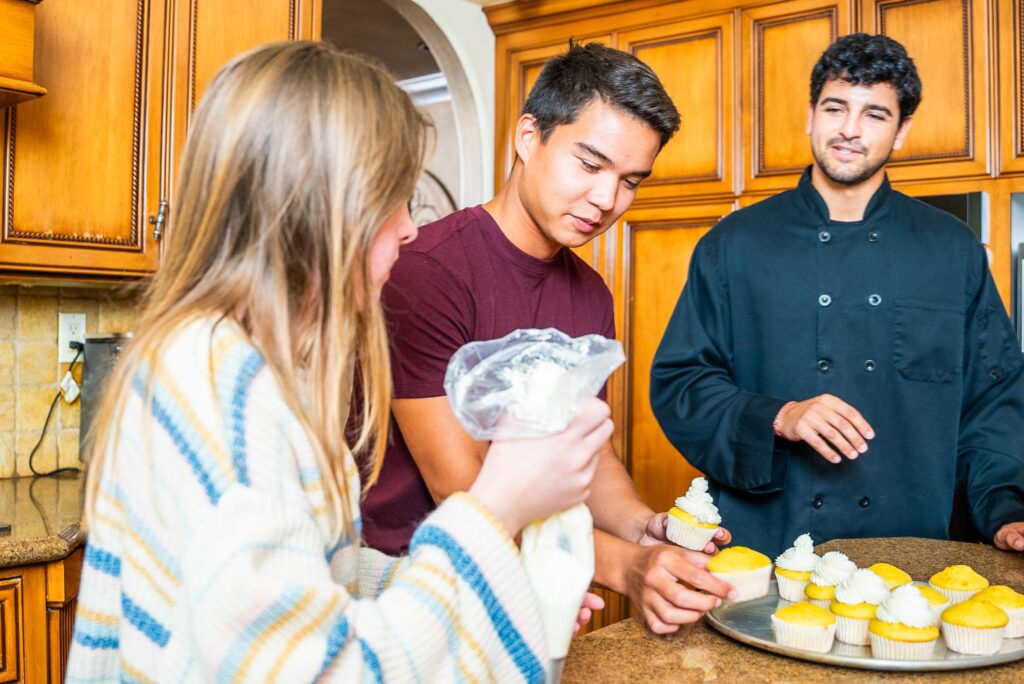
6. Strength-Based Approach

Rather than focusing solely on a teen’s challenges, we take a strength-based approach to treatment. This means identifying and nurturing each teen’s inherent talents, abilities, and potential.
By emphasizing their strengths, we help teens build self-esteem, resilience, and a positive sense of identity. This approach empowers them to see themselves as capable and deserving of success, providing a foundation for lifelong confidence and growth.
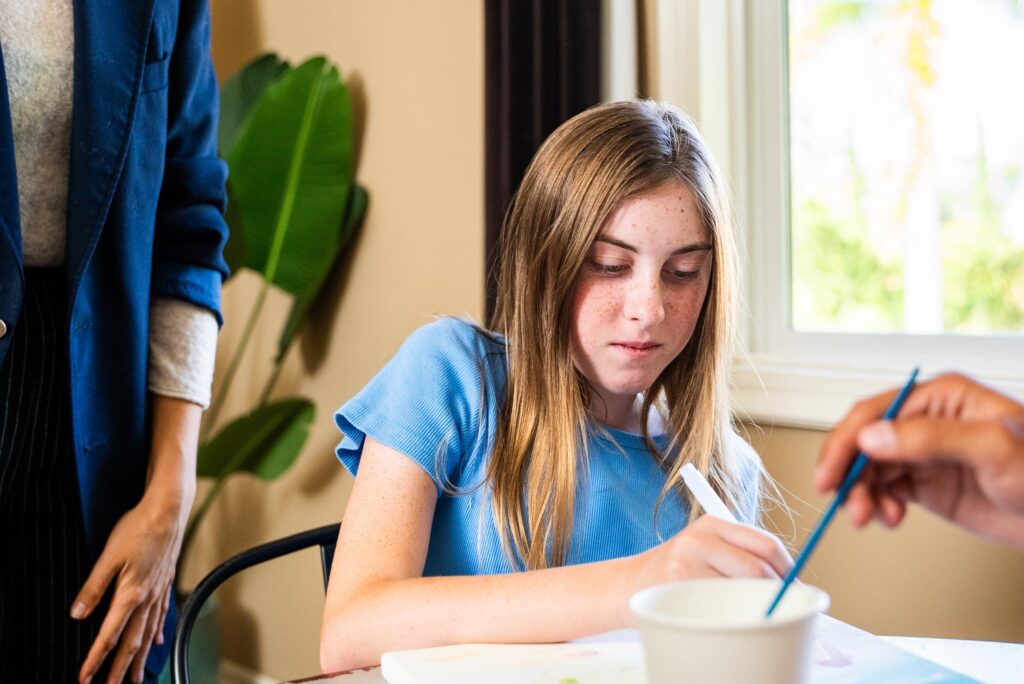
7. Connection 
Connection is at the heart of healing. Teens at Hillcrest benefit from a safe and supportive environment where they can form meaningful relationships with peers and staff.
We foster healthy communication, encourage teamwork, and promote peer support through group activities and therapeutic exercises. These experiences help teens build trust, improve social skills, and realize they are not alone in their struggles.
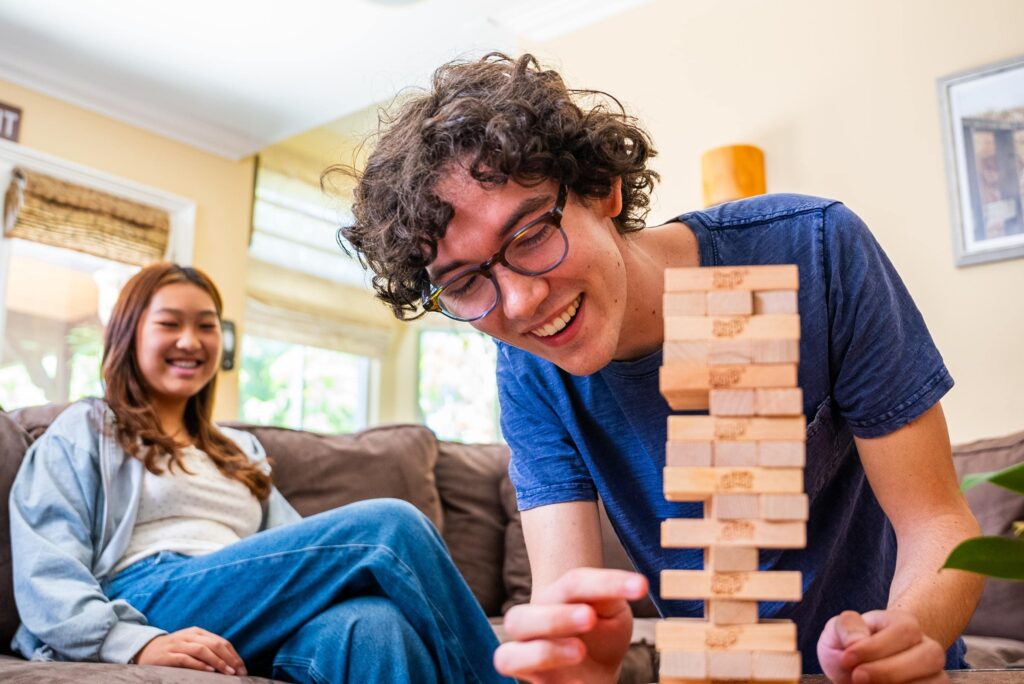
8. Trust

Healing cannot happen without trust, and at Hillcrest, we make building trust a top priority. Many teens arrive feeling vulnerable, fearful, or resistant. Our approach is to meet them where they are—emotionally, mentally, and socially—acknowledging their unique circumstances.
We create a judgment-free space where teens feel safe to open up at their own pace. By actively listening, validating their experiences, and treating them with genuine care and respect, we foster an environment where trust grows naturally over time.
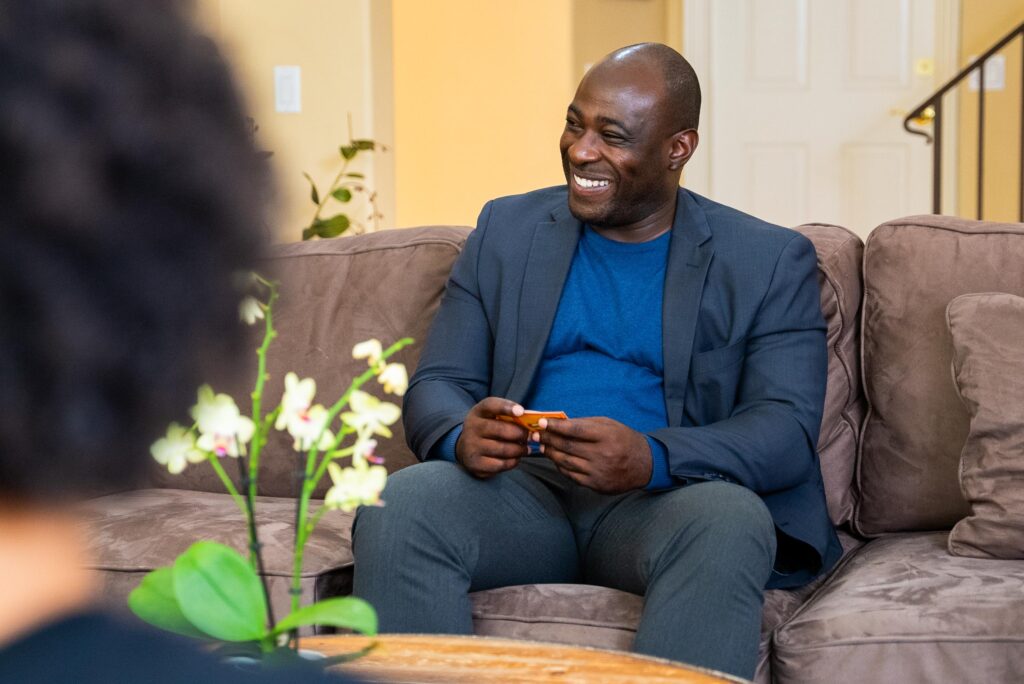
What Makes Hillcrest Adolescent Different?
At Hillcrest Adolescent, we’ve created a treatment approach that stands apart through our unwavering commitment to individualized care and evidence-based practices. Every resident receives daily individual therapy sessions two to three days per week, ensuring consistent, focused therapeutic support that adapts to their evolving needs.
Our treatment programs maintain intentionally small sizes, allowing our clinical team to provide concentrated attention and develop deeper therapeutic relationships with each resident.
We understand the importance of environment in the healing process, which is why our facility offers a serene, comfortable setting that promotes recovery and growth. Our rigorous admissions screening process ensures we can effectively serve each resident we accept, while our comprehensive discharge planning focuses on seamlessly reintegrating clients back into their daily lives with the tools and support they need to thrive.
We prioritize education alongside adolescent treatment, offering academic services that help residents stay on track with their studies. Privacy and confidentiality remain paramount in all aspects of our care, creating a safe space for authentic healing. Our treatment approaches are continuously refined based on the latest research in adolescent mental health, ensuring we provide the most effective care possible.
How Do I Know When Residential Treatment is Appropriate for My Teen?
- Your teen is struggling with daily functioning, showing significant difficulty maintaining relationships, attending school, or participating in usual activities despite outpatient treatment efforts
- Previous treatment approaches, including outpatient therapy or intensive outpatient programs, haven’t provided the level of support your teen needs
- Your teen’s mental health challenges are creating an unsafe environment at home, affecting both their wellbeing and family dynamics
- You’ve noticed escalating behaviors such as self-harm, severe anxiety, depression, or substance use that require more intensive intervention and monitoring
- Your teen’s mental health professional has recommended a higher level of care to address their specific challenges
- School performance has significantly declined, and traditional academic support isn’t addressing the underlying mental health concerns
- Your teen is showing signs of isolation, withdrawal from family and friends, or expressing feelings of hopelessness that persist despite current interventions

How Do I Know When Residential Treatment is Appropriate for My Teen?
- Your teen is struggling with daily functioning, showing significant difficulty maintaining relationships, attending school, or participating in usual activities despite outpatient treatment efforts
- Previous treatment approaches, including outpatient therapy or intensive outpatient programs, haven’t provided the level of support your teen needs
- Your teen’s mental health challenges are creating an unsafe environment at home, affecting both their wellbeing and family dynamics
- You’ve noticed escalating behaviors such as self-harm, severe anxiety, depression, or substance use that require more intensive intervention and monitoring
- Your teen’s mental health professional has recommended a higher level of care to address their specific challenges
- School performance has significantly declined, and traditional academic support isn’t addressing the underlying mental health concerns
- Your teen is showing signs of isolation, withdrawal from family and friends, or expressing feelings of hopelessness that persist despite current interventions


Ready to Begin?
Don’t wait to get your teen the support they need. Contact our admissions team to learn more about how Hillcrest Adolescent can help your family.
Our experienced professionals will guide you through the evaluation process and help determine if our residential program is the right fit for your teen. Call us complete our confidential online form to begin the conversation about your teen’s path to healing.










